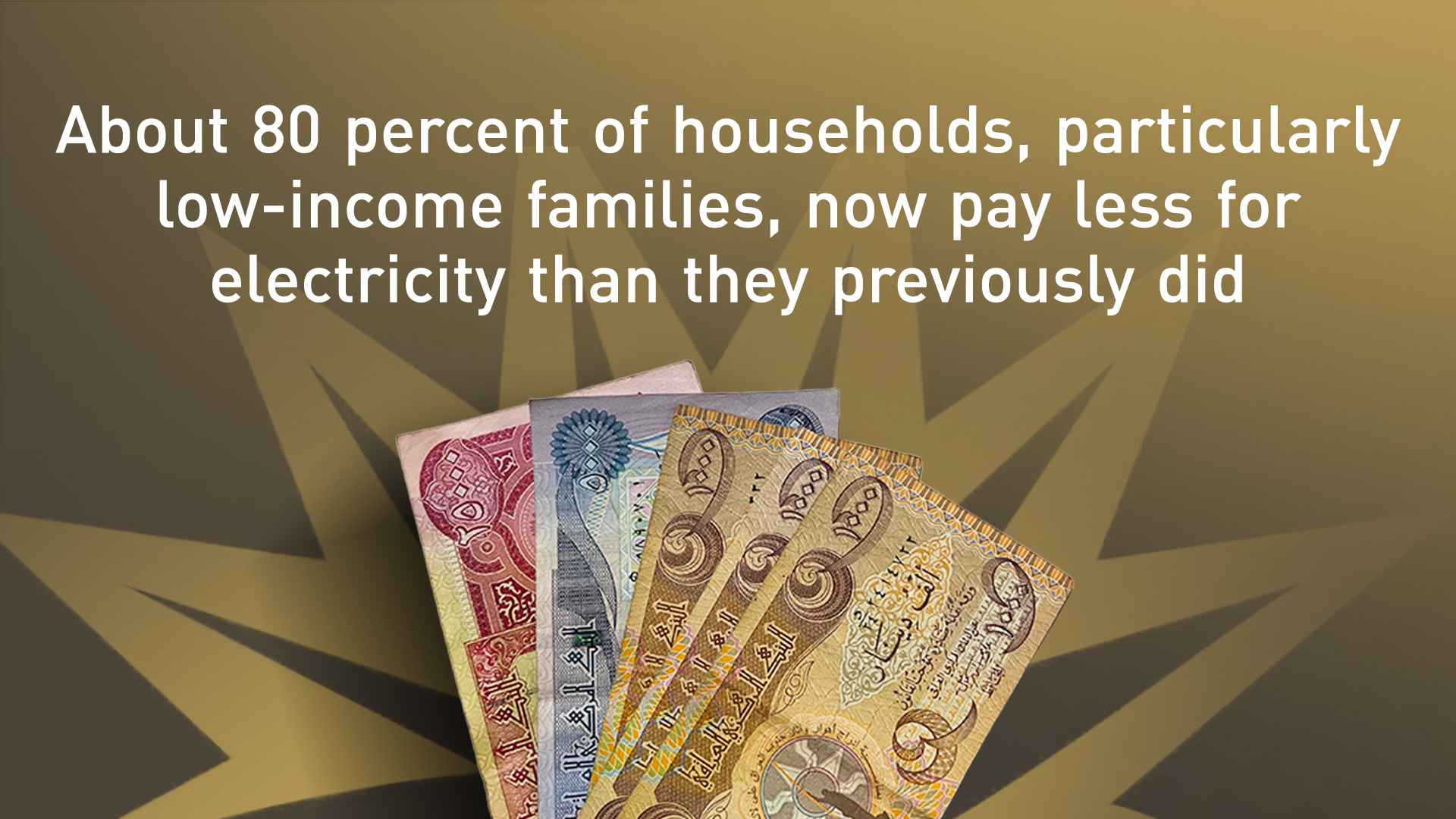Runaki Program Brings Record-Low Electricity Bills Across Kurdistan Region
The Ministry highlighted that about 80 percent of households, particularly low-income families, now pay less for electricity than they previously did for the combination of the national grid and neighborhood diesel generators.

ERBIL (Kurdistan Region) — The Kurdistan Regional Government’s (KRG) Ministry of Electricity announced on Tuesday that households and businesses enrolled in the Runaki program received record-low electricity bills for June, marking a significant milestone in the KRG’s drive to deliver affordable and reliable power.
According to official data, households in Sulaimani paid the lowest amounts region-wide, with half of them paying less than 16,000 IQD in June. By comparison, the figure stood at 29,000 IQD in Erbil, 28,000 IQD across the Kurdistan Region overall, and 25,000 IQD in Duhok. Businesses also benefited, with Sulaimani and Erbil averaging under 70,000 IQD, while those in Duhok paid around 46,000 IQD.
More than 2.7 million citizens — approximately 40 percent of the Kurdistan Region’s population — are currently connected to Runaki, alongside 103,000 businesses. Erbil leads with nearly 1.5 million citizens and 51,000 businesses benefiting from the system, followed by Sulaimani with almost one million citizens and 38,000 businesses, and Duhok with 288,000 citizens and 14,000 businesses.
The Ministry highlighted that about 80 percent of households, particularly low-income families, now pay less for electricity than they previously did for the combination of the national grid and neighborhood diesel generators.
Kurdistan Region Prime Minister Masrour Barzani launched the Runaki program in October 2024. The KRG Council of Ministers unanimously approved the program and its progressive tariff structure in May 2025.
The government has set a target to provide 24-hour electricity to every home and business across the Kurdistan Region by the end of 2026.
The Runaki program not only reduces electricity costs but also enhances energy efficiency and sustainability in the Kurdistan Region. By transitioning to a more modern and reliable power infrastructure, the program decreases reliance on costly and polluting diesel generators. This initiative also supports economic growth by enabling businesses to operate more cost-effectively, ultimately leading to increased investment and job creation in the region.
Meanwhile, authorities in the Kurdistan Region are reporting markedly cleaner air in the capital, Erbil, following a dual-pronged effort to shut down dozens of unlicensed oil refineries and dramatically reduce the number of private generators through the landmark Runaki program.
Read More: Runaki Project and Refinery Shutdowns Drive Cleaner Air in Erbil